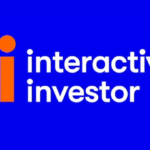Tulipshare Ratings

Name: Tulipshare
Description: Tulipshare is an ethical activist investing app, which aims to use it’s customers’ investments to force positive ESG change at major listed US companies. When you buy shares on their platform, you are also joining a campaign to submit shareholder proposals to AGMs.
Why we like it:
Tulipshare is a one-of-a-kind investment account that lets you put your money to good. When you invest with Tulpishare you also join one of their activist investing campaigns to make companies more ethical and sustainable
Pros
- Invest in positive change
- Ethical investing
Cons
- Limited companies to invest in
- Fees high for small trades
-
Pricing
(3)
-
Market Access
(1)
-
Online Platform
(3.5)
-
Research & Analysis
(5)
Overall
3.1Tulipshare Expert Review
In this review we:
- Give our ratings based on their nearest peers
- Tell you what we think of them after testing them with real money
- Highlight the key costs, facts and figures of their accounts
The world has suddenly become such a seemingly awful place. I can’t remember the last time I didn’t wake up anxious. Before the threat of Putin nuking us all, it was COVID. Plus, it’s not just the end of the world via disease or war that people have to worry about now, there is also the chance that we are all going to go broke.
The price of UK Government gilts have dropped as institutions worry about parliamentary instability. This has the knock-on effect of reducing the value of everyone’s pensions. Most pensions of course are a combination of company shares (which are riskier investments for capital growth) and bonds (which as supposedly lower-risk investments for regular income).
- Further reading – see our analysis of UK Gilts when a reader asked how to buy them
So combined with rampant inflation, not only are we all going to die, we’re going to the grave skint as well.
But, depressing as all that is, it has not stopped a plethora of investment apps from entering the market to democratise investing for everyone. But, everyone has always been able to invest, there have always been discount investment platforms. When I was at university twenty years ago I had an account with Selftrade, where you could invest in anything from £5 a trade. Sure that’s not great value if you’re trying to speculate in the short term on buying £100 of Lloyds shares, but then it would still be £5 commission if you bought £100,000 or even £1m. But if you’re planning on investing that £100 over five to ten years, it’s actually fine. Plus you could work limits, have stop losses and invest in (as the fashion was at the time) small-cap AIM stocks with exponential growth potential, which could “go to the moon” as the phrase goes.
I also had an account with deal4free where you could trade shares with no commission as a derivative, but only if you understood what that was…
None of the modern investment apps do this. They all have a limited market range and all orders get lumped in at the end of the day. So actually, the new breed of investing apps are worse than the stock brokers from two decades ago.
However, no one really cares about small-cap stocks anymore, new investors are all being hoodwinked into crypto scams by social media influencers.
And if they are buying individual stocks they only seem to want to buy Tesla (NASDAQ:TSLA), Facebook, Google or Netflix which they do through free investing apps offering zero commission. I’ve said many times that zero commission is a marketing gimmick and not sustainable in the long run because when it comes to investing you get what you pay for, in more ways than one.
But, what modern investment apps do though is give people what they want. Which is investing in American stocks. Back then it was painfully expensive and in some cases the foreign exchange costs could be 5%. Tulisphare for instance charges no more than 0.75% when you convert money into USD, the industry average seems to be around 0.5%, with IBKB being the lowest at 0.2%.
Investment apps are actually quite easy to set up all you need is a marketing budget, a developer and a partnership with some like Wealthkernal, Seccl or Drivewealth (who Tulipshare use) to provide the complicated investment infrastructure. The other thing you need is something that makes you different.
There are other ethical investment apps out there like Clim8, Circa500 (previously tickr) and Goodfolio has just raised some money on Seedrs, but they don’t really do anything dramatic. All they really do is provide access to a restrictive list of ethical focussed ETFs. When I interviewed Clim8’s CEO Duncan Grierson he said the real value from them would come when they launch their own ETFs. Interactive Brokers IMPACT app is brilliant (as is almost everything that IBKR does) in that it will analyse your portfolio and give your holdings an ethical rating, then let you automatically switch to one that has a higher ESG score.
Refreshingly, Tulipshare is definitely not competing with zero-commission brokers, because they charge a whopping 7% commission for trades under $50. This does of course scale the higher the value of your transaction to 0.75% for deals above $500 and 0.5% above $1,000.
There are also not very many stocks to invest in and you can only buy an amount, you can’t specify how many shares to buy or at what price.
But that’s ok because in my mind what makes Tulipshare different it that it is not really an investing platform to make money on, it’s about investing to make a difference. When you invest with Tulipshare, you are not just buying a share, you are joining an activist investor campaign.
The campaigns focus on collectively building up a large enough stake in a company to present a resolution to the board to make meaningful change. It’s a bit like what Gordon Gekko did in Wall Street but instead of building a stake in a company to sack people and sell it off for parts, Tulipshare has activist campaigns that focus on people, the planet and governance.
For this review, I invested in their campaign to get Coca-Cola to reduce its single-use plastic bottle usage by 25% by 2025. It’s very easy to open an account, you do have to jump through the usual hoops though as it’s not just crowdfunding to back a protest, you become a real shareholder in Coca-cola and can vote in company meetings.
Other campaigns on Tulipshare include:
- Press for Apple to Enhance Reporting on App Store Takedowns
- Ensure Fair and Safe Working Environments for Amazon Warehouse Workers
- Demand Johnson & Johnson Stop Global Sales of Cancer-causing Products
- Stop JPMorgan Chase‘s Investments in Fossil Fuels
- McDonald’s Must Enact Better Sustainable Packaging Policies for Plastics
- Stop Google from Hiding its Impact on Water Scarcity as a “Trade Secret”
- Fight for Racial Equity at Salesforce
- Stop Microsoft From Funding Anti-Abortion Movements
- Demand ExxonMobil Disclose Climate Related Risk in its Fossil Fuel Expansion
- Demand That Mondelez End Child Labor in Cocoa Production
- Caterpillar Must Be Held Accountable for Its Contribution to Climate Change
- Ask Nike to Protect its Supply Chain Garment Workers
- Chubb Must Disclose GHG Emission Reduction Measures
- Versace, Michael Kors, and Jimmy Choo must implement a sustainable supply chain
- Meta Platforms (formerly Facebook) Must Improve its Governance of Harmful Content
- Post Should Disclose Harmful Pesticides in Our Cereal
- Link Tesla’s Executive Compensation to ESG Performance
- Deere & Co. Needs a Climate Transition Plan
It would be good to see Tulipshare basket these together into an ETF, so that you can invest in them all in one go through any investment platform.
If you want to know more about these campaigns you can view them directly on Tulipshare or read my interview with the founder and CEO Antoine Argouges. He explains in great detail why activist investing is so important and how the platform makes it easier for people to put their investments to good use.
Chances are you already own some of the companies that Tulipshare is campaigning against. If you have a pension, it will almost definitely contain a global growth fund or tracker that contains some of these large companies. Even if it is labelled as ESG or ethical, there has been so much Greenwashsing over the last few years to make ETFs and funds look more ethical than they are.
The FCA has just announced that they are cracking down on this, by proposing new rules to tackle greenwashing. But as we all know, the FCA is a big lumbering giant of an organisation that takes an age to do anything.
Usually, at this point, I’d say something piffy like all investment platforms sell the same biscuits and is there really enough space in a saturated market for another investing app, or how sustainable is a business that focuses on sustainability rather than profits, or that the website was a bit clunky. But, you can’t really compare Tulipshare to other investing apps because when I spoke to Antoine, I got the impression that he doesn’t care about them and just wants to do his own thing, which is to change the world for the better.
So. Should you invest with Tulipshare and join one of their campaigns? Why wouldn’t you… Most of the companies listed are large dividend-paying profitable businesses. If you want to try and make some money in the stock market, why not try and do some good at the same time. It might make you feel better.
Tulipshare Video Demo
Watch as we picked Tulipshare as our “app-of-the-day” and invested in one of their campaigns through the app.
Customer Reviews
Tell us what you think:

Richard is the founder of the Good Money Guide (formerly Good Broker Guide), one of the original investment comparison sites established in 2015. With a career spanning two decades as a broker, he brings extensive expertise and knowledge to the financial landscape.
Having worked as a broker at Investors Intelligence and a multi-asset derivatives broker at MF Global (Man Financial), Richard has acquired substantial experience in the industry. His career began as a private client stockbroker at Walker Crips and Phillip Securities (now King and Shaxson), following internships on the NYMEX oil trading floor in New York and London IPE in 2001 and 2000.
Richard’s contributions and expertise have been recognized by respected publications such as BusinessInsider, Yahoo Finance, BusinessNews.org.uk, Master Investor, Wealth Briefing, iNews, and The FT, among many others.
Under Richard’s leadership, the Good Money Guide has evolved into a valuable destination for comprehensive information and expert guidance, specialising in trading, investment, and currency exchange. His commitment to delivering high-quality insights has solidified the Good Money Guide’s standing as a well-respected resource for both customers and industry colleagues.


